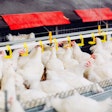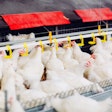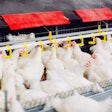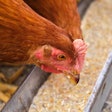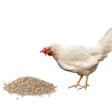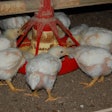Healthy demand for phytogenic feed additives (PFAs) in livestock production could cause annual global sales to grow four-fold by 2030, according to calculations by Biomin.
The botanicals market has grown rapidly in recent years, having topped $500 million in global sales in 2015. Worldwide sales will cross the $1 billion threshold by 2023 and could reach $2 billion annually by 2030.
“Looking at numerous scenarios based on feed production trends, evolving consumer demands, changes in livestock production including antibiotic-free and antibiotic-reduction strategies, and the growing demand for animal protein products, by 2030 we can expect the PFA market to total between $1.7 billion and $2 billion,” said Michael Noonan, global product manager phytogenics at Biomin.
“Improving feed efficiency is a perennial concern for the livestock industry,” Noonan said. Feed costs represent anywhere from 50 to 80 percent of production costs, depending on the livestock species and country.
Market drivers
Though roughly 3 percent of the 1.2 billion tons of feed used worldwide include these plant-based products, PFA inclusion in livestock feed should grow considerably by 2030. This represents growth in global market demand of 8 to 10 percent per year on average.
“Some of the largest and most sophisticated livestock operations have been early adopters of phytogenic feed additives, and have continued to use them in light of the benefits that they have achieved,” Noonan said.
Consumer preferences have shifted considerably in recent years, as efforts to phase out antibiotic growth promoters (AGPs) and coccidiostats have accelerated in countries worldwide, including Brazil, China and the United States. Antibiotic reduction and the uptake of novel growth promoters (NGPs) to optimize feed costs, improve efficiency and reduce emissions should boost demand worldwide for PFAs in the future.






